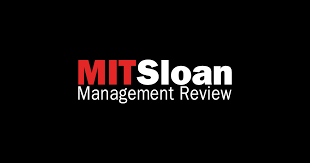
Extractive summaries and key takeaways from the articles curated from TOP TEN BUSINESS MAGAZINES to promote informed business decision-making | Since September 2017 | Week 350 | May 24-30, 2024

Personal Development, Leading & Management Section | 1
To Navigate Conflict, Prioritize Dignity
By Merrick Hoben | MIT Sloan Management Review | May 20, 2024
Extractive Summary of the Article | Read and/or Listen
Conflicts between businesses pursuing commercial objectives and communities defending their interests arise regularly and often inevitably, especially when companies don’t prioritize engagement with their neighbors.
Leaders inclined to think strategically and competitively may believe that stakeholder management in these cases is a matter of outmaneuvering the other party through gamesmanship, but that is shortsighted. When corporate interests conflict with the needs and values of communities, we need to build better interactions among people, especially those intensely at odds with one another who also need to collaborate.
This is where augmenting dignity can help. By dignity, we mean our inherent sense of value, self-worth, and need to contribute and shape what matters most to us. Emphasizing dignity in conflict resolution doesn’t displace the tactics and strategies of classical interest-based negotiation, either; rather, it precedes them, prioritizing what drives human behavior.
Four interrelated practices that distill what’s needed most to sustain such dignity, thereby helping people navigate effective problem-solving and healthier collaboration. These four practices are:
- Deepening acknowledgment can set organizations on a better path to problem-solving. As Donna Hicks writes in Dignity: Its Essential Role in Resolving Conflict (Yale University Press, 2021), acknowledgment happens when you grant people “your full attention by listening, hearing, validating, and responding to their concerns, feelings, and experiences,” creating a gateway to deeper engagement. Acknowledgment in this sense is not platitudinous empathy. Rather, it’s about naming tensions and core issues with an appropriate emotional tenor.
- Strengthening agency helps parties understand and explore their own opportunities for shaping outcomes. As a facilitator in the Niger Delta, the author has seen deep tensions between communities and energy companies take a constructive turn once community members understand their real influence over both process and outcomes.
- Building reciprocity keeps momentum alive through practices that encourage constructive, give-and-take behavior. These practices include the demonstration of genuine curiosity, skillful active listening, and conscientiousness with respect to what’s needed to understand the other side’s perspective better.
- Ensuring clarity of path means stating next steps clearly and addressing understandable anticipation from participants.
3 key takeaways from the article
- Conflicts between businesses pursuing commercial objectives and communities defending their interests arise regularly and often inevitably, especially when companies don’t prioritize engagement with their neighbors.
- Leaders inclined to think strategically and competitively may believe that stakeholder management in these cases is a matter of outmaneuvering the other party through gamesmanship, but that is shortsighted. When corporate interests conflict with the needs and values of communities, we need to build better interactions among people, especially those intensely at odds with one another who also need to collaborate. This is where augmenting dignity can help. By dignity, we mean our inherent sense of value, self-worth, and need to contribute and shape what matters most to us.
- Four interrelated practices that distill what’s needed most to sustain such dignity, thereby helping people navigate effective problem-solving and healthier collaboration. These four practices are deepening acknowledgment, strengthening agency, building reciprocity, and ensuring clarity of path.
(Copyright lies with the publisher)
Topics: Strategy, Stakeholders Management, Conflict Resolution, Energy, Mining Companies, Decision-making, Dignity, Empathy
